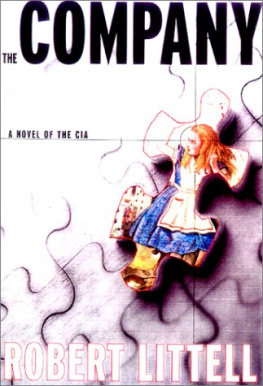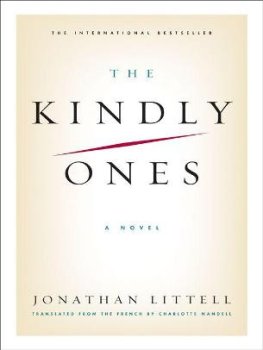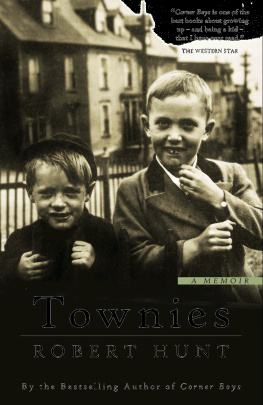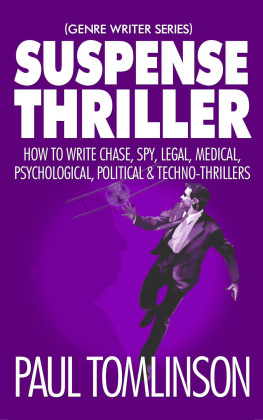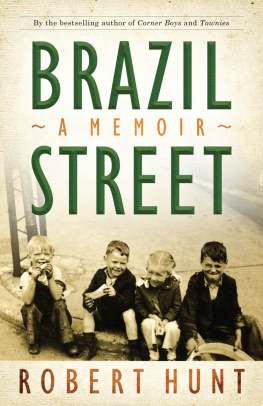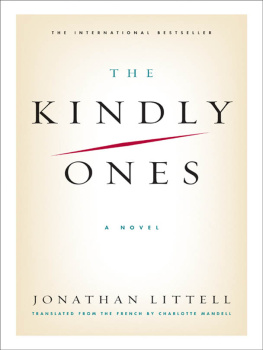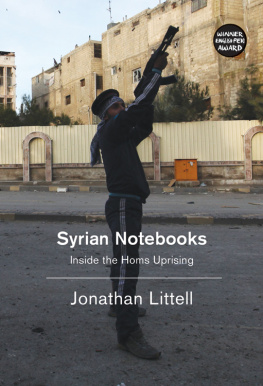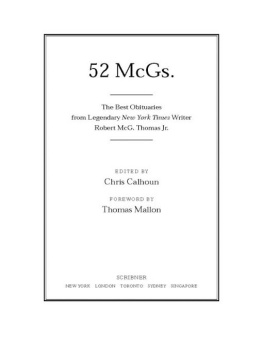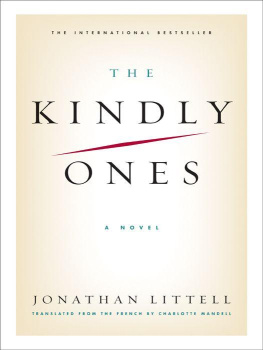THE COMPANY
Robert Littell
ROME, THURSDAY, SEPTEMBER 28, 1978
HIGH OVER THE CITY, A RACK OF CLOUDS DRIFTED ACROSS THE hunter's moon so rapidly it looked as if a motion picture had been speeded up. On a deserted avenue near a long wall, a dirty yellow Fiat mini-taxi cut its lights and its motor and coasted to the curb at Porta Angelica. A lean figure wearing the rough ankle-length cassock and hood of a Dominican friar emerged from the back seat. He had been raised in the toe of the boot of Italy and was known as the Calabrian by the shadowy organizations that from time to time employed his services. As a teenager, the Calabrian, a beautiful young man with the angelic face of a Renaissance castrato, had trained for several years as an equilibrist in a circus academy but abandoned it when he fell from a high wire and shattered an ankle. Now, despite a perceptible limp, he still moved with the catlike elegance of a tightrope walker. From the hills above the Tiber, a church bell that had recently been hooked up to an electric timer sounded the half-hour half a minute early. The Calabrian checked the luminous dial of his wristwatch, then walked the fifty meters alongside the colonnade to the heavy wooden doors. Pulling on a pair of surgeon's latex gloves, he scratched at the tradesmen's entrance. Immediately a heavy bolt on the inside was thrown and the small blue door set into the larger doors opened just enough for him to slip through. A pale, middle-aged man, dressed in mufti but with the ramrod bearing of an army officer, held up five fingers and nodded toward the only window of the guard barracks out of which light streamed. The Calabrian nodded once. With the officer leading the way, the two started down the alley, ducking when they came to the lighted window. The Calabrian peered over the sill; inside the orderly room two young soldiers in uniform were playing cards, three others dozed in easy chairs. Automatic weapons and clips of ammunition were visible on the table next to a small refrigerator.
The Calabrian trailed after the officer in mufti, past the Institute for Religious Works, to a servants' door in the back of the sprawling palazzo. The officer produced a large skeleton key from his jacket pocket and inserted it into the lock. The door clicked open. He dropped a second skeleton key into the Calabrian's palm. "For the door on the landing," he whispered. He spoke Italian with the flat elongated vowels of someone who came from one of the mountainous cantons of Switzerland bordering the Dolomite Alps. "Impossible to get the key to the apartment without attracting attention."
"No matter," the Calabrian said. "I will pick the lock. What about the milk? What about the alarms?"
"The milk was delivered. You will soon see whether it was consumed. As for the alarms, I disconnected the three doors on the control panel in the officers' ready room."
As the Calabrian started through the door, the officer touched his arm. "You have twelve minutes before the guards begin their next patrol."
"I am able to slow time down or speed it up," remarked the Calabrian, looking up at the moon. "Twelve minutes, spent carefully, can be made to last an eternity." With that, he vanished into the building.
He knew the floor plan of the palazzo as well as he knew the lifelines on the palms of his hands. Hiking his cassock, taking the steps three at a time, he climbed the narrow servants' staircase to the third floor, opened the door with the skeleton key and let himself into the dimly lit corridor.
A long tongue of violet drugget, faded and worn in the middle, ran from the far end of the corridor to the small table facing the antiquated elevator and the central staircase next to it. Moving soundlessly, the Calabrian made his way down the corridor to the table. A plump nun, one of the Sisters of the Handmaids of Jesus Crucified, sat slumped over the table, her head directly under the pale circle of light from a silver desk lamp almost as if she were drying her hair. An empty tumbler with the last of the drugged milk was next to the old-fashioned telephone perched high on its cradle.
The Calabrian pulled an identical tumbler, with a film of uncontaminated milk at the bottom, from one of the deep pockets of his cassock and retrieved the nun's glass containing traces of the doped milk. Then he headed back up the corridor, counting doors. At the third door, he inserted a length of stiff wire with a hook on the end into the keyhole and expertly stroked the inside until the first pin moved up into position, then repeated the gesture with the other pins. When the last pin moved up, the lock snapped open. The Calabrian eased open the door and listened for a moment. Hearing nothing, he padded through the foyer into a large rectangular drawing room with a marble fireplace on each end and ornate furniture scattered around. The slatted shutters on all four windows had been pulled closed. A single table lamp with a low wattage bulb served, as the briefing report had predicted, as a night-light.
Gliding soundlessly across the room and down a hallway on rubber-soled shoes, the Calabrian came to the bedroom door. He turned the ceramic knob and carefully pushed the door open and listened again. A stifling stuffiness, the stench of an old man's room, emerged from the bedchamber; the person who occupied it obviously didn't sleep with a window open. Flicking on a penlight, the Calabrian inspected the room. Unlike the drawing room, the furnishings were spartan: there was a sturdy brass bed, a night table, two wooden chairs, one piled with neatly folded clothing, the other with dossiers, a wash basin with a single tap over it, a naked electric bulb dangling from the ceiling, a simple wooden crucifix on the wall over the head of the bed. He crossed the room and looked down at the figure sleeping with a sheet drawn up to its chin. A thickset man with a peasant's rugged features, he had been in his new job only thirty-four days, barely enough time to learn his way around the palazzo. His breathing was regular and intense, causing the hairs protruding from his nostrils to quiver; he was deep in a drugged sleep. There was a tumbler on the night table with traces of milk at the bottom, and a photograph in a silver frameit showed a prince of the church making the sign of the cross over a young priest prostrate on the ground before him. The inscription, written in a bold hand across the bottom of the photograph, read "Per Albino Luciani, Venizia, 1933." A signature was scrawled under the inscription: "Ambrogio Ratti, Pius XI." Next to the photograph was a pair of reading spectacles, a worn bible filled with place markers, and a bound and numbered copy of Humani Generis Unitas, Pius XI's never-promulgated encyclical condemning racism and anti-Semitism that had been on the Popes desk awaiting his signature the day he died in 1939.
The Calabrian checked his wristwatch and set to work. He rinsed the milk glass in the wash basin, dried it on the hem of his cassock and replaced it in precisely the same place on the night table. He produced the phial filled with milk from his pocket and emptied the contents into the glass so there would be a trace of uncontaminated milk in it. Clamping the penlight between his lips, the Calabrian turned to the drugged man in the bed, stripped back the sheet and heaved him over onto his stomach. Then he pulled up the white cotton nightgown, exposing the saphenous vein behind the knee. The people who had hired the Calabrian had gotten their hands on Albino Luciani's medical report after a routine colonoscopy the previous winter; because of the varicose nature of the vein running the length of his right leg, the patient had been given preventive treatment against phlebitis. The Calabrian fetched the small metal kit from his pocket and opened it on the bed next to the knee. Working rapidlyafter his high-wire accident, he had spent several years as a male nursehe inserted a 30-gauge, 0.3 millimeter needle into the syringe filled with extract from a castor oil plant, then deftly stabbed the needle into the saphenae behind the knee and injected the four-milliliter dose of fluid into the bloodstream. According to his employer, cardiovascular collapse would occur within minutes; within hours the toxin would dissipate, leaving no trace in the unlikely event an autopsy were to be performed. Carefully extracting the incredibly thin needle, the Calabrian wiped away the pinpoint of blood with a small moist sponge, then bent close to see if he could detect the puncture wound. There was a slight reddening, the size of a grain of sand but that, too, would disappear by the time the body was discovered in the morning. Satisfied with his handiwork, he went over to the chair piled high with dossiers and shuffled through them until he came to the one marked, in Roman letters, KHOLSTOMER. Lifting the hem of his cassock, he wedged the file folder under his belt, then looked around to see if he had forgotten anything.
Next page
